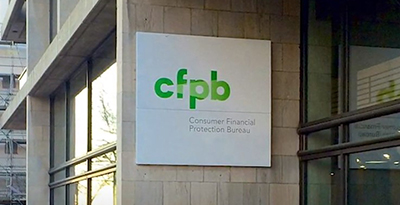
CFPB Proposes Rule to Establish Public Registry on Contracts Limiting Consumer Protections

The Consumer Financial Protection Bureau on Wednesday issued a proposed rule to establish a public registry of supervised nonbanks’ terms and conditions in “take it or leave it” form contracts that claim to waive or limit consumer rights and protections, such as bankruptcy rights, liability amounts or complaint rights.
The Bureau said in some cases, terms and conditions in non-negotiable form contracts mislead consumers into believing the terms or conditions are legally enforceable. Under the proposed rule, nonbanks subject to the CFPB’s supervisory jurisdiction would need to submit information on terms and conditions in form contracts they use that seek to waive or limit individuals’ rights and other legal protections. That information would be posted in a registry that will be open to the public, including to other consumer financial protection enforcers.
“Some companies seek to censor their customers and strip them of their rights by inserting fine print into non-negotiable contracts,” said CFPB Director Rohit Chopra. “The CFPB is proposing a registry of these contract clauses to find out where people are unable to speak up when they’ve been harmed.”
The Bureau said many companies’ financial products and services require consumers to sign lengthy form contracts. The companies write the form contracts as well as define any choices offered, and consumers cannot negotiate. Some companies slip terms and conditions into their form contracts that try to take away consumer protections, try to limit how consumers exercise their rights, or try to quiet consumer complaints or criticism, and more broadly, the terms and conditions potentially undermine consumer financial protection law.
“There is often little choice for consumers except to sign these form contracts due both to their market pervasiveness and the critical role the products and services play in people’s daily lives,” the Bureau said.
A public comment period will remain open for 60 days following publication of the proposed rule on the CFPB’s website or 30 days following publication of the proposed rule in the Federal Register, whichever period is longer.
